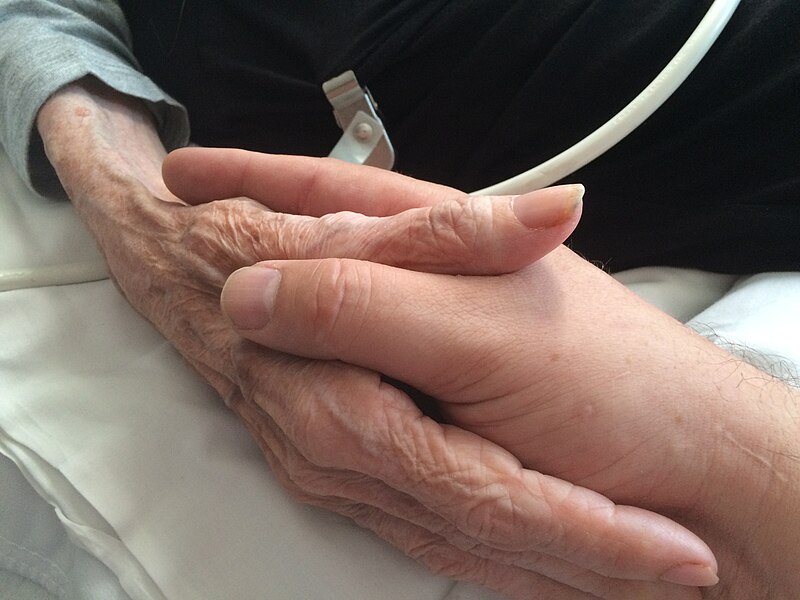Dehydration
Sadly, dehydration is a problem in nursing homes, due to an unfortunate trend of prioritizing cutting costs over patient care. Nursing home abuse and nursing home neglect is a serious problem across the nation. Symptoms of dehydration in nursing homes are not uncommon, and the consequences of dehydration can be very serious, potentially resulting in the death of a loved one.
Elderly Individuals Suffering from Dehydration
The body’s natural ability to conserve water diminishes with age. Reactions to medications, dementia, diabetes and other chronic diseases associated with aging can exacerbate dehydration in the elderly. Another factor that contributes to dehydration in the elderly is a patient’s inability to mobilize in order to properly nourish and hydrate themselves without assistance.
Dehydration of Patients in Nursing Homes
Statistics show that understaffed nursing homes are far more likely to have issues with falling below the mark when it comes to meeting the most basic needs of their patients, especially surrounding hydration and nourishment. Patients in nursing homes are especially vulnerable because they require constant care to meet their most basic needs. These needs include requiring to be cleaned, clothed, fed, hydrated, as well as requiring direct assistance conducting everyday tasks of self-care and maintenance. Failure to properly observe these aspects of care can result in traumatic injuries, malpractice, nursing abuse and utlimately wrongful death.
Staffing Standards
There needs to be minimum staffing standards implemented in nursing homes to ensure that there are enough caregivers on board to adequately meet the hydration needs of clients. Studies show that there is an unfortunate trend in understaffing nursing homes across the nation. The direct link between dehydration and understaffing is apparent from the statistical results of multiple studies. Basically, it is a simple equation: the more staff nursing homes have on board, the less likely institutions are to allow their patients to slip between the cracks. Furthermore, the larger the nursing staff, the more care and concern your loved ones receive. More interaction between patients and staff guarantees a higher rate of success in making sure that problems like dehydration do not occur. At the very least, better staffing can prevent otherwise avoidable injuries.
Ensuring Proper Hydration and Nutrition
Studies have shown that patients who are attended to while they eat and hydrate themselves are far more likely to receive proper hydration and nutrition. This may seem obvious, however, allowing a patient to eat on their own does not guarantee that their meal is properly consumed. Studies have also shown that nursing homes that require their staff to tend to patients’ hydration and nutrition needs within a designated narrow window of time are more likely to neglect nursing home patients, because nurses and other caretakers feel pressured to meet deadlines. There are two easy steps a nursing home can take to protect its patients. First, allow nurses the freedom to interact with the patient outside of prescribed visit times. Second, hire more staff.
What are the Important Considerations for Choosing Nursing Home?
What is important to consider when it comes to cases of neglect such as severe dehydration in nursing home patients is the element of human kindness and compassion. Patients and their families have rights to adequate and competent care, and treating them like numbers is the result of misplaced priorities: prioritizing monetary gain over adequate patient care and compassion. Although it is important for nursing homes to operate efficiently, prioritizing expenses at the expense of patient safety is an unacceptable breach of the duty of care owed to nursing home patients and the people who love them.
What are the Dehydration Symptoms to Look for in Adults?
- Severe thirst
- Infrequent urination
- Discoloration of urine: darker in color than normal
- Exhaustion
- Disorientation/ confusion
- Difficulty with balance and dizziness.
What are some of the Causes of Dehydration?
- Vomiting and diarrhea
- Severe sweating
- Fever
- Amplified urination due to diabetes or reactions to medications.
What Complications may Result from Dehydration?
- Over heating: can lead to heat related injuries such as heat related cramps and heat stroke.
- Kidney and urinary tract complications that may lead to infections of the urinary tract, kidney stones, and failure of the kidneys –renal disease.
- Seizures: electrolyte imbalance can cause muscles to contract involuntarily or induce seizures and consciousness loss.
- Hypovolemic shock: low blood volume is incredibly serious potential consequence of dehydration. Low blood volume lowers blood pressure and deplete oxygen in the body, which can prove to be life threatening.
Related Articles by Ed Smith –
- Nursing Home Placement Tips
- Dementia
- Bed Sores
- Nursing Home Patient Rights
- Who to call if you Suspect Nursing Home Abuse
- Chemical Restraint – Overmedication of Nursing Home Residents
Nursing Home Abuse & Neglect Lawyers in Sacramento
I’m Ed Smith, a Sacramento nursing home abuse attorney. If your loved one has been the victim of nursing home abuse or nursing home neglect, call me for free, friendly advice anytime at (916) 921-6400 or (800) 404-5400.
Member of the Million Dollar Advocates Forum: an exclusive list of attorneys who have settled cases of one million dollars or more and are ranked top in the country.
See a listing of the past verdicts and settlements I have obtained for some of my clients.
My client ratings can be viewed on Google, Avvo, and Yelp.
Learn more about our Sacramento Injury Lawyers here.
Image Attribution: Wikimedia Commons
:db/bw

